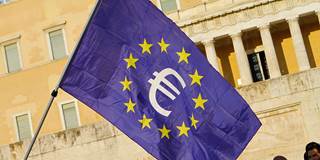Whether or not the eurozone will succeed in finding ways to ensure that all of its members grow and benefit from growth cannot be known. What is certain is that in an environment like the current one, where the worst has passed, the task has become much easier.
LONDON – A couple of years ago, the eurozone – about one-sixth of the world economy – appeared to be in serious trouble. Beginning in 2010, an unexpected sovereign debt crisis contributed to and was compounded by serious weaknesses in major banks. Fiscal austerity, in Greece and other relatively weak countries, helped fuel an overall economic downturn. In the absence of generous mutual support, there was an aura of last-ditch desperation when, in March 2015, the European Central Bank announced an ambitious program of purchasing government debt.

LONDON – A couple of years ago, the eurozone – about one-sixth of the world economy – appeared to be in serious trouble. Beginning in 2010, an unexpected sovereign debt crisis contributed to and was compounded by serious weaknesses in major banks. Fiscal austerity, in Greece and other relatively weak countries, helped fuel an overall economic downturn. In the absence of generous mutual support, there was an aura of last-ditch desperation when, in March 2015, the European Central Bank announced an ambitious program of purchasing government debt.